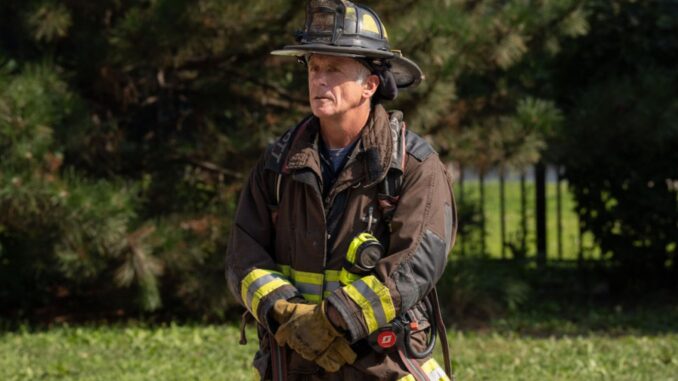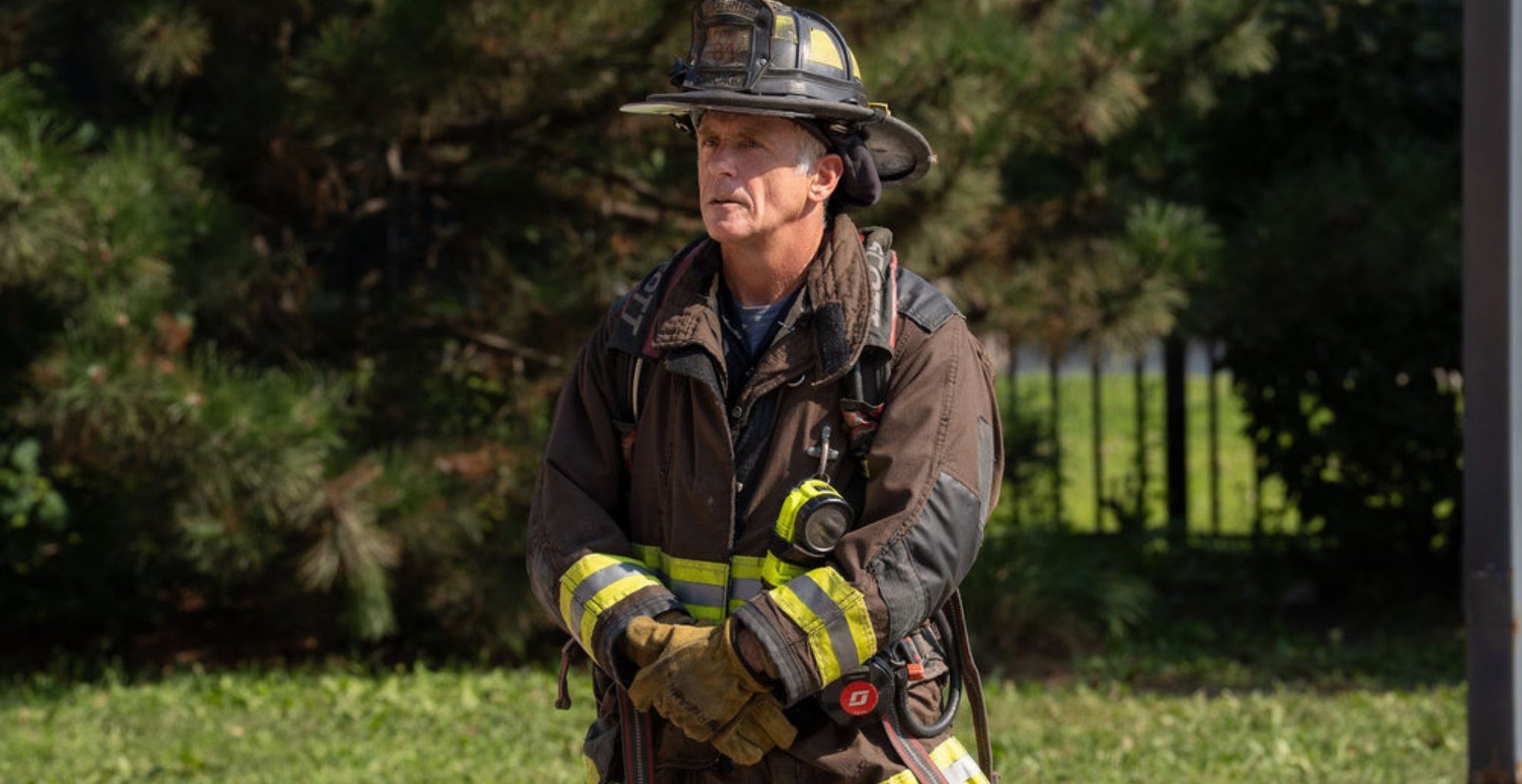
In the volatile world of Chicago Fire, where sirens wail, flames roar, and the line between life and death is razor-thin, one constant has been the enduring presence of Christopher Herrmann. A gruff, good-hearted lieutenant, a seasoned veteran of Firehouse 51, and a co-owner of Molly’s, Herrmann embodies the blue-collar spirit and unyielding dedication that defines the series. But after years of battling infernos and navigating personal crises, a fervent debate ignites among the show’s dedicated fanbase: Should Herrmann retire?
The question isn’t born of malice, but of affection, a testament to the indelible mark Herrmann has left. On one side of the digital fence, a chorus of fans argues for his well-deserved retirement, painting a picture of a life beyond the firehouse. “Look at the man,” one fan might type, “He’s been through hell and back! He deserves to put his feet up, run Molly’s full-time, and spend more time with Cindy and the kids.” This perspective often highlights the sheer physical toll of firefighting. The relentless stress, the danger, the back-breaking work of navigating burning buildings and carrying unconscious victims – it’s a young person’s game, they argue. To see Herrmann, his hairline receding further with each passing season, still on the front lines, battling fires with the same tenacity as a rookie, evokes a protective instinct in viewers. “He’s earned his peace,” another might add. “Let him go out on top, before anything happens to him. We don’t want to see him forced out or injured.” This viewpoint also touches on the natural progression of life and the need for new blood. A retirement would open up a lieutenant spot, creating new opportunities for character development within the firehouse, perhaps allowing a promising young firefighter to step into a leadership role, much as Herrmann himself once did. It’s a pragmatic argument, rooted in a realistic understanding of the profession and a desire for a character to receive a dignified, happy ending.
Conversely, the opposing camp rises in staunch defense of Herrmann’s continued presence, their arguments steeped in the emotional bedrock he provides for Firehouse 51. “Retire Herrmann? Are you kidding me?” thunders a typical response. “He is the heart and soul of 51! Who’s going to dispense that gruff, Midwestern wisdom? Who’s going to be the voice of reason when Chief Boden isn’t around?” This camp emphasizes Herrmann’s invaluable experience. He’s seen every kind of fire, every kind of tragedy, and every kind of human frailty. His seasoned judgment, his ability to read a situation, and his unwavering calm under pressure are not just assets but necessities in such a dangerous environment. He’s the gruff, wise uncle of the house, the one who can simultaneously complain about his back and be the first to charge into danger. “His experience saves lives,” a fan might passionately declare. “You can’t just replace that with a younger face. He’s the anchor, the moral compass!” Furthermore, his role extends beyond just fighting fires. Herrmann is the linchpin of the family dynamic within 51. His banter with Mouch, his mentorship of younger firefighters, his steadfast loyalty – these are the threads that weave the rich tapestry of the show. His absence, they argue, wouldn’t just be a character departure; it would be a gaping maw in the show’s very fabric, a silence where his grumpy wisdom once resonated.
Yet, the conversation isn’t merely binary. It’s illustrative of the profound connection viewers form with fictional characters. The debate surrounding Herrmann isn’t just about plot mechanics; it’s about identity. It highlights the tension between the desire for realism (firefighters do eventually retire) and the emotional investment in a beloved figure who feels like family. It’s the struggle between wanting to see a character find peace and the fear of losing a cornerstone of a cherished fictional world. Both sides articulate a deep-seated affection for the character, differing only in their vision for his future.
Ultimately, whether Christopher Herrmann continues to answer the bell or decides to hang up his helmet, the very existence of this fervent fan debate underscores his monumental impact. He has transcended the screen, becoming a symbol of resilience, loyalty, and the everyday heroism that defines Chicago Fire. The discussion itself is a testament to the writers’ success in crafting a character so real, so essential, that his hypothetical retirement stirs such passionate, heartfelt arguments among the very people who tune in week after week to watch him fight another day.
